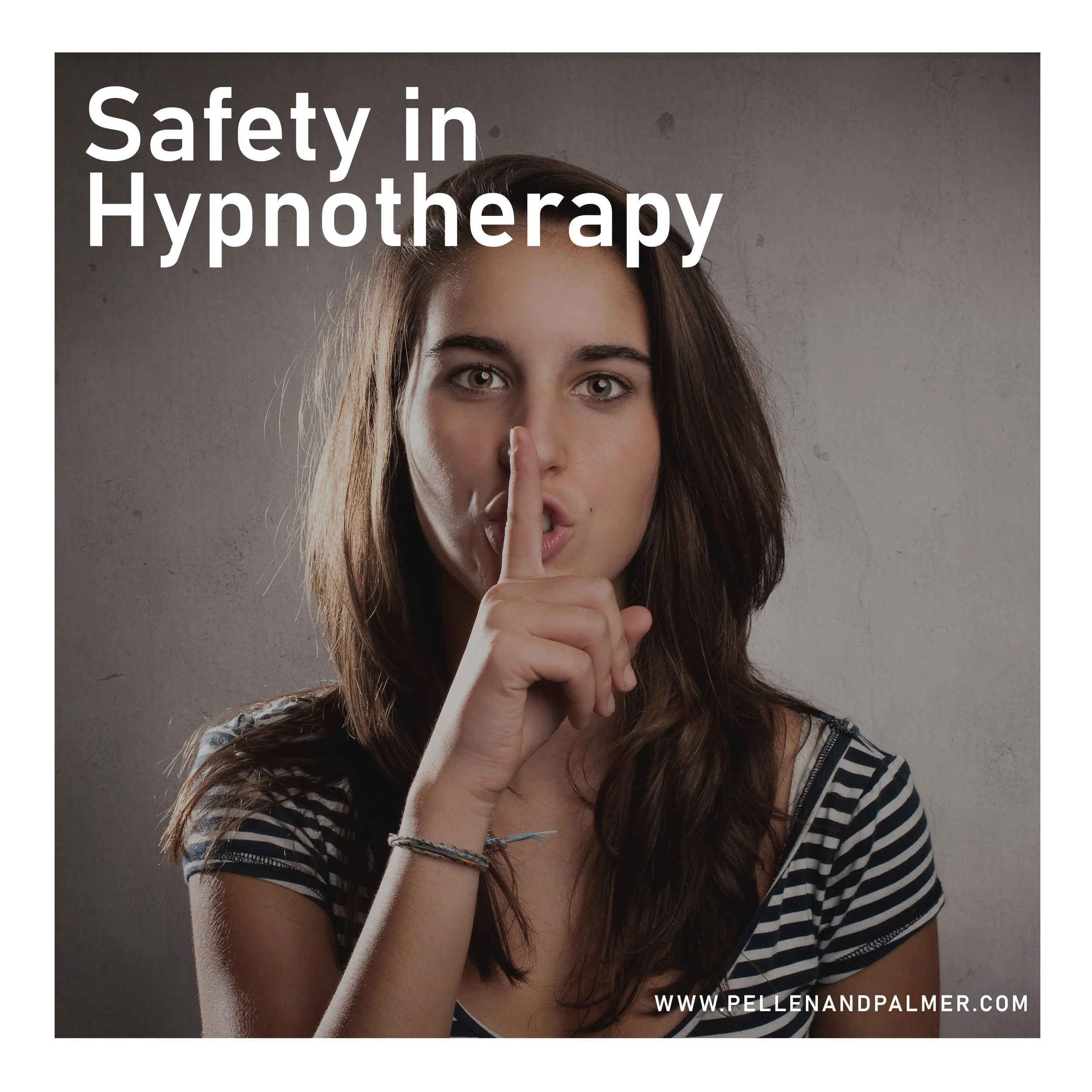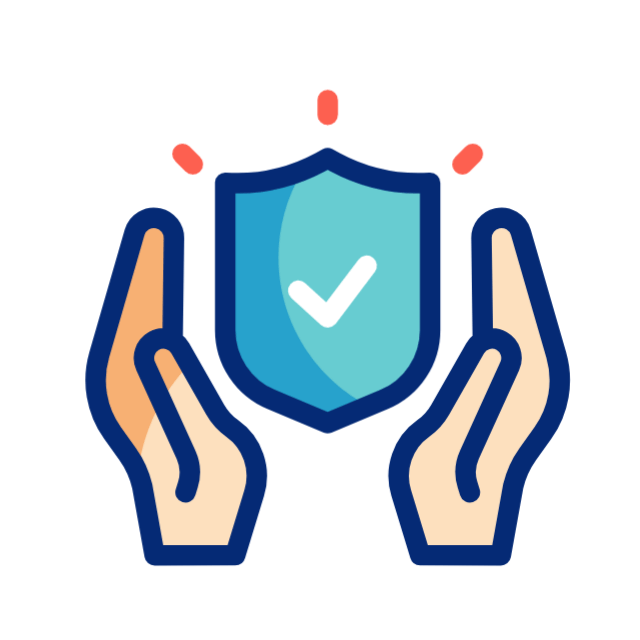Why Safety, Transparency & Systems Matter in Hypnotherapy: A Real Talk
IS HYPNOTHERAPY SAFE?
As a hypnotherapist what should I do?
Sometimes, the conversations that matter the most are the hardest to start.
In both Australia and New Zealand, the hypnotherapy communities are growing and evolving – and as gatekeepers of our respective professional bodies, we've recently had to navigate some challenging situations behind the scenes. While we won’t go into the details, what came from those situations was a powerful conversation about responsibility, safety, transparency, and what it means to hold space ethically as hypnotherapists.
It’s Not About Fear - It’s About Integrity
We’re not here to fear-monger. But we are here to talk honestly.
Both of our communities recently faced scenarios that raised the question: What practices do we need to have in place to protect our clients, our therapists, and the reputation of the profession? What’s been happening isn’t limited to hypnotherapy - it’s part of a broader issue of vulnerable people being taken advantage of in spaces where trust and healing are supposed to live.
When we become aware of harmful behaviour - whether it’s unethical practices, breaches of scope, or misuse of influence, we have a duty of care to take action. Not to shame or punish, but to protect. To support those affected. And to make sure it doesn’t keep happening.
When You're in a Position of Power, You Must Act Like It
As hypnotherapists, we work with people’s minds. Their beliefs. Their inner worlds. That comes with power - and responsibility.
If a client says something concerning (such as suicidal ideation or intent to harm), it’s not something to brush off. And if a therapist steps outside their scope - telling someone to stop medication, questioning a diagnosis, or planting harmful suggestions - we need to be ready to step in. Not because we want to create conflict, but because silence can cause harm.
Both of us have faced criticism for stepping in. It’s not fun. But doing nothing? That makes us complicit.
Supervision & Community Support Matter
One of the most powerful things that’s come from recent events has been the strength of our communities. Hypnotherapists reaching out, speaking up, checking in, and holding each other accountable.
In a profession where many people work alone, community support and professional supervision aren't just nice-to-haves - they're essential. When you're part of an associated body, you're part of a framework that protects you and your clients. And you're not alone when something tricky or uncomfortable arises.
Let’s Be Real: Hypnotherapy Is Not Automatically “Safe”
Here’s the truth that needs to be said: Hypnotherapy is only as safe as the person delivering it.
We’ve seen the damage caused by untrained or poorly trained practitioners working outside their scope. People being told they're possessed, alien, or inherently broken. Clients walking away with more confusion and fear than when they arrived.
There’s a myth that hypnotherapy is completely safe. It’s not. Just like massage, counselling, or any therapeutic modality - if misused, it can harm. And that’s why professional bodies, ethical frameworks, and clear boundaries matter.
Why We Hold a Line in the Sand
Some people question why professional registration matters. Why we have strict entry requirements or codes of conduct. But as one midwife and advisor put it perfectly to us: “The community needs a clear line in the sand between who is professional and who is not.”
Being part of a professional association doesn’t mean you’re better than someone else. But it does mean you're willing to be accountable. You're willing to uphold a standard, participate in supervision, and continually reflect on your practice.
And clients deserve to know whether the person they’re working with is operating under professional standards.
Systems Protect You - and Your Clients
If you’re a practitioner reading this, know this: systems are your safety net.
From intake forms to supervision, from Zoom consultations to ethical contracts - these aren’t red tape. They’re how you protect yourself and your clients. If someone can’t follow simple steps to book a session or complete an intake, that’s a red flag. And if you bend your systems to accommodate everyone, you risk being controlled by the client instead of holding therapeutic authority.
Your systems are not just for admin - they’re part of your professional boundaries.
Let’s Keep Leveling Up Together
We’ve built two powerful communities on either side of the Tasman. And we’re proud of the way both Australia and New Zealand’s hypnotherapy professionals are stepping up. We’d love to see that grow into a truly global network of ethical, supported, and empowered practitioners. Because hypnotherapy can be life-changing - when done responsibly.
So let’s keep drawing that line in the sand.
Let’s keep choosing integrity over popularity.
Let’s keep doing the work to protect our clients, each other, and the profession.
Because when we know better, we must do better.
—
If you're a hypnotherapist and you want to be part of a professional, ethical, and supportive community, check out:
-
No therapy is 100% safe, and hypnotherapy is no exception. Hypnotherapy is only as safe as the practitioner delivering it. A trained, ethical, and professional hypnotherapist will know how to create a safe environment, work within their scope, and avoid causing harm. Unfortunately, when vulnerable clients work with unqualified or unregulated practitioners, there's a risk of misinformation, false beliefs, and psychological damage.
-
Choosing a hypnotherapist who belongs to a recognised professional association, like Clinical Hypnosis Australia or Hypnosis New Zealand, ensures that they’re trained, supervised, and accountable. These therapists follow a code of ethics, receive ongoing professional development, and are held to high standards. It’s a way to protect both clients and the reputation of the profession.
-
Always do your research. Look for a hypnotherapist who: Has completed reputable training Is part of a professional association Follows clear client systems (e.g. intake forms, consent, contracts) Offers supervision and operates within ethical guidelines Avoid choosing based on price or location alone. Your mental wellbeing deserves professional care.
-
If a hypnotherapist steps outside their scope or causes harm, professional bodies have a responsibility to take action. This may include investigating complaints, offering mediation, or removing a member if necessary. Bodies exist not to protect practitioners - but to protect the public as well. Transparency, ethical conduct, and clear boundaries are non-negotiable in this work.
-
Clear systems - like informed consent, online booking, intake forms, and supervision- are essential for protecting both the client and the therapist. They ensure safety, professionalism, and clarity. Systems also help practitioners identify red flags, avoid misunderstandings, and stay within legal and ethical boundaries.


